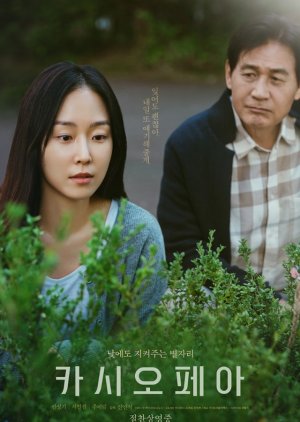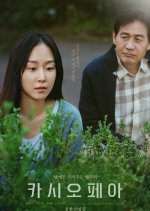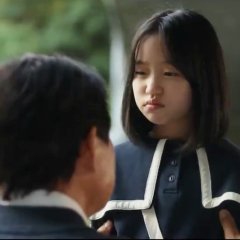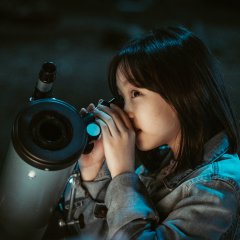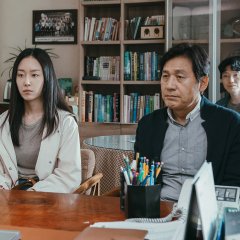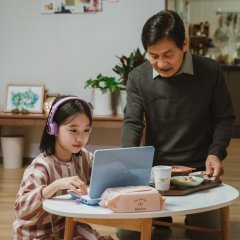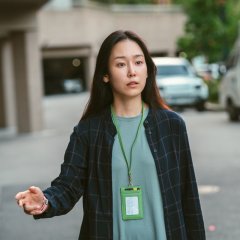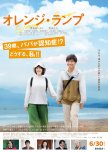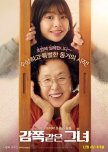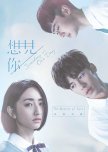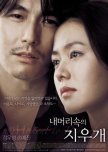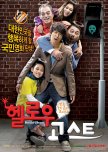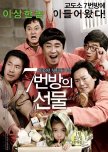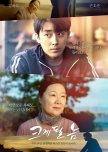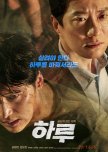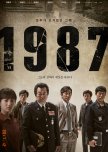 Upcoming drama "Uncle Samsik" announces its cast lineup
Upcoming drama "Uncle Samsik" announces its cast lineup - Français
- 中文(台灣)
- English
- magyar / magyar nyelv
- Titre original: 카시오페아
- Aussi connu sous le nom de:
- Scénariste et Réalisateur: Shin Yeon Shick
- Genres: Drame
Distribution et équipes
- Seo Hyun JinSoo JinRôle principal
- Ahn Sung KiIn WooRôle principal
- Joo Ye RimJi Na [Soo Jin's daughter]Rôle Secondaire
- Hong Sung Chun[Representative of Law Firm]Rôle Secondaire
- Goo Shi Yeon[Partner Attorney at Law Firm]Rôle Secondaire
- Lee Young RanMi JaRôle Secondaire
Critiques

unterwegsimkoreanischenD
23 personnes ont trouvé cette critique utile
Cette critique peut contenir des spoilers
Father + daughter challenged in the face of presenile Alzheimer
Cassiopeia has already won the Korean Association of Film Critics Awards 2022.I would recommend it, too.
The KMovie Cassiopeia tackles an unpleasent subject: presenile Alzheimer's dementia. In an increasingly aging society, dementia will become more and more present and more common within the personal environment of all of us. Most cases occur at ages 65+. However, a small percentage is also affected at a younger age. This can even occur very early due to hereditary factors - as documented sensitively and unforgettable in the KMovie "A Moment to Remember". But this can also have many other causes. Dementia is a shocking diagnosis at any age, because with your eyes wide open, your own life inevitably slips away... faster than you imagine, you will no longer be able to recognize your own children, partners, friends or parents, while also the bodily functions will do their own thing.
"Cassiopeia" is about a woman in her 40s who is overwhelmed by presenile Alzheimer's dementia. However, the narration is slightly different than in "A Moment to Remember". "A Moment to Remember" captures the strong emotionality of the mental degeneration process practically from within - in touching scenes and sensitive relationship dynamics and tells the story of how memories in her head are erased as a painful loss for everyone involved. In "Cassiopeia", on the other hand, the audience follows the accumulating social moments in a comparatively objective manner, in which the exponentially progressing decay of the nerve cells is expressed - simply stating, so to speak. (Just as the protagonist initially presents herself as an objective, sober and rather sever person.) Emotionality is not dramaturgically staged in this KMovie, but results from the sum of soberly observed situations of individual loss of control and Su-jin's familiar world broken in two - one in which clarity still reigns and one in which everyone, even she herself is a stranger. From the emotionality thus involved - fear of failure, helplessness, shame, being at the mercy of others and much more - one cannot withdraw oneself. Rather, this emotionality develops an increasingly peculiar driving force (just as the protagonist's psychological/physical development process picks up speed). Eventually, the KMovie goes straight to the heart and makes people think.
In "A Moment to Remember" the focus was on the relationship dynamics with the beloved husband, here it is the portrait between daughter and father. In this case, the father tries to do better in old age what he could not do when he was younger, as he was not around.
In "A Moment to Remember" the protagonist is still at the very beginning of her young, promising life. In "Cassiopeia" Su-jin has achieved quite a lot: she is a mother, a successful lawyer, and also divorced. The daughter is about to move to her father in the USA. Significantly, the life of the protagonist, as it was up to now, ends in several respects with the departure of her daughter. It becomes difficult even for the star constellation Cassiopeia to give life perspective and orientation...
(By the way: the KMovie builds on a nice analogy between Cassiopeia and family. Both the star constellation pointing to the North Star and one's own family cannot help you, finding your path and your own way with life. Yet, we can rely on them if we got lost along the way: as some place to look out for/reach out for, regarding perspective/support).
Emotive. Especially by those often deliberatly soberly, calmly captured situations in which both the orderly and deformed worlds meet and finally merge. The helplessness and coldness of the social environment enfolds in all its unvarnished harshness - by its objective narrative style and camera perspective it is subtly thrown back at us. We are emotionally drawn into what is happening in two respects: regarding our empathy with Su-jin, which we cannot escape in the progress of the story, as well as regarding our identification with people/strangers Su-jin meets along the way - because that is what we are, too. How do WE actually deal with people who have obviously lost control of their lives or are about to lose it? Can WE stand this? Can WE lend a helping hand with this? Be of support? Even (or especially) if it's just a casual encounter on the street, an acquaintance in the neighborhood, or a colleague at work?
Cet avis était-il utile?

Cette critique peut contenir des spoilers
One of the best korean movies of 2022
This was an amazing movie.When i read the synopsis of this movie on dr*macool it only said " A story about dementia with father-daughter relationship.", so i thought the person with dementia would be the father, but that plot twist caught me off guard.
This movie tells a story about a working lawyer/ single mother who loves her daughter more than everything, later in the movie she sends her daughter to the US to be with her ex husband and right after that its when she discovers she has Alzheimer.
Its her father who helps her with everything that she needs but unfortunately, he struggles a lot doing so.
The most emotional part for me was when she was with her father in the car and she has a mental breakdown because she doesn't want to forget her daughter.
I also loved the ending scene which made me also cry buckets.
TW :
S*icide A*tempt
S*xual A*sult
Cet avis était-il utile?

